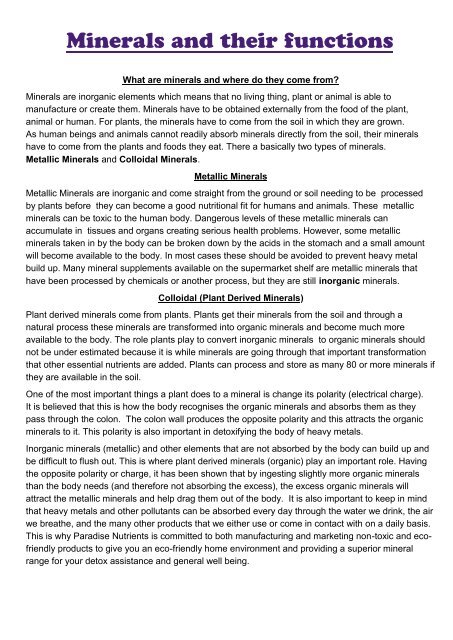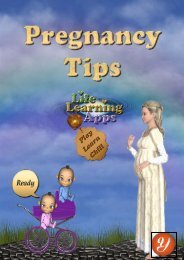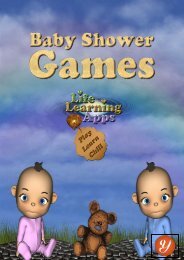Why Minerals?
Here is a guide for the function of minerals and why PLANT DERIVED minerals are essential for optimum health.
Here is a guide for the function of minerals and why PLANT DERIVED minerals are essential for optimum health.
Create successful ePaper yourself
Turn your PDF publications into a flip-book with our unique Google optimized e-Paper software.
<strong>Minerals</strong> and their functions<br />
What are minerals and where do they come from?<br />
<strong>Minerals</strong> are inorganic elements which means that no living thing, plant or animal is able to<br />
manufacture or create them. <strong>Minerals</strong> have to be obtained externally from the food of the plant,<br />
animal or human. For plants, the minerals have to come from the soil in which they are grown.<br />
As human beings and animals cannot readily absorb minerals directly from the soil, their minerals<br />
have to come from the plants and foods they eat. There a basically two types of minerals.<br />
Metallic <strong>Minerals</strong> and Colloidal <strong>Minerals</strong>.<br />
Metallic <strong>Minerals</strong><br />
Metallic <strong>Minerals</strong> are inorganic and come straight from the ground or soil needing to be processed<br />
by plants before they can become a good nutritional fit for humans and animals. These metallic<br />
minerals can be toxic to the human body. Dangerous levels of these metallic minerals can<br />
accumulate in tissues and organs creating serious health problems. However, some metallic<br />
minerals taken in by the body can be broken down by the acids in the stomach and a small amount<br />
will become available to the body. In most cases these should be avoided to prevent heavy metal<br />
build up. Many mineral supplements available on the supermarket shelf are metallic minerals that<br />
have been processed by chemicals or another process, but they are still inorganic minerals.<br />
Colloidal (Plant Derived <strong>Minerals</strong>)<br />
Plant derived minerals come from plants. Plants get their minerals from the soil and through a<br />
natural process these minerals are transformed into organic minerals and become much more<br />
available to the body. The role plants play to convert inorganic minerals to organic minerals should<br />
not be under estimated because it is while minerals are going through that important transformation<br />
that other essential nutrients are added. Plants can process and store as many 80 or more minerals if<br />
they are available in the soil.<br />
One of the most important things a plant does to a mineral is change its polarity (electrical charge).<br />
It is believed that this is how the body recognises the organic minerals and absorbs them as they<br />
pass through the colon. The colon wall produces the opposite polarity and this attracts the organic<br />
minerals to it. This polarity is also important in detoxifying the body of heavy metals.<br />
Inorganic minerals (metallic) and other elements that are not absorbed by the body can build up and<br />
be difficult to flush out. This is where plant derived minerals (organic) play an important role. Having<br />
the opposite polarity or charge, it has been shown that by ingesting slightly more organic minerals<br />
than the body needs (and therefore not absorbing the excess), the excess organic minerals will<br />
attract the metallic minerals and help drag them out of the body. It is also important to keep in mind<br />
that heavy metals and other pollutants can be absorbed every day through the water we drink, the air<br />
we breathe, and the many other products that we either use or come in contact with on a daily basis.<br />
This is why Paradise Nutrients is committed to both manufacturing and marketing non-toxic and ecofriendly<br />
products to give you an eco-friendly home environment and providing a superior mineral<br />
range for your detox assistance and general well being.

















